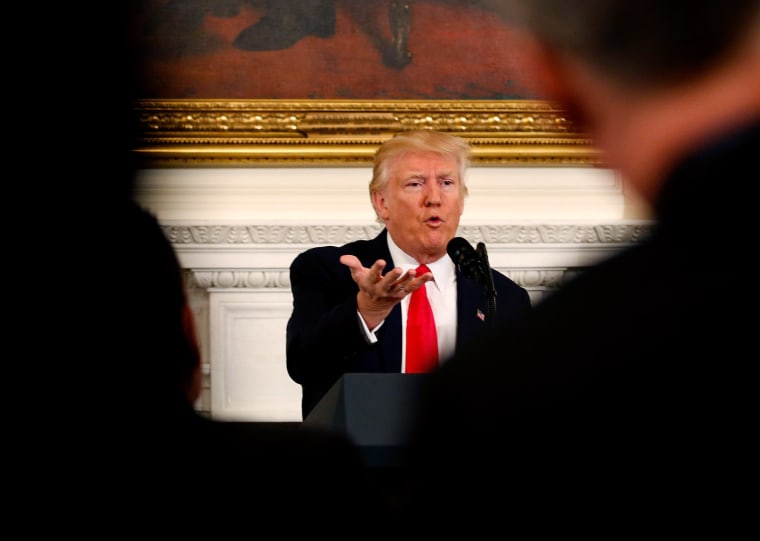NBC News' Chuck Todd recently gave Politico an interesting tidbit about Donald Trump. During the campaign, after his "Meet the Press" appearances, the Republican would request that the control room replay the interview for him -- on mute."Then there's the amount of time he spends after the interview is over, with the sound off," Todd said of Trump. "He wants to see what it all looked like."The insight tells us something important about the president's priorities: as far as Trump is concerned, what he says is less important than how he looked while saying it. Substance is fine, as far as it goes, but style is the real priority.As coverage of the president's address to Congress continues, it's hard not to wonder just how many pundits feel the exact same way.The Washington Post's Robert Costa noted this morning that White House officials were "frankly surprised" this morning at pundits' praise for Trump's speech. The reporter's sources said the president's agenda "has not changed," and there's "no big shift in policy coming."In other words, Team Trump largely assumed that to start receiving positive coverage, the administration would have to adopt a less regressive, less reactionary agenda. Officials in the West Wing were therefore caught off guard -- because all it took was presenting the same agenda in a "tone" pundits found pleasing.In fact, the praise was effusive to a jarring degree. Politico ran a piece this morning that asked, "Was this the Trump that could win in 2020?" CNN ran a splash headline in a big font, declaring, "Presidential Trump." Fox News' Chris Wallace went so far as to say, "I thought it was by far the best speech I ever heard Donald Trump give. It was one of the best speeches -- in that setting -- that I've heard any president give."Something is amiss and it's important to understand what.The Washington Post's Chris Cillizza, responding to pushback, asked, "Why can't Trump be praised for delivering a good speech, full stop?" I think he was asking sincerely, not rhetorically, and I'd like to present an earnest answer.Too often, we like to think of politics as theater, and it's easy to understand why. There are stages, cameras, and lights, featuring well-known public figures -- some might say "celebrities" -- who've spent time rehearsing their lines. If it sounds like a dramatic production it's because in many ways, it resembles one.Political punditry soon follows with theatrical lines of analysis. How did the politicians "perform"? Did they deliver their lines well? What kind of feelings did they emote? Did they appear confident? Presidential? How was the applause?The problem is, while questions like these are entirely appropriate when evaluating actual theater, these same tests are a shallow and superficial approach to critiquing elected officials governing a modern global superpower.Put another way, maybe we need to start asking different kinds of questions following speeches, debates, and political spectacles.For example, when scrutinizing a State of the Union address -- or, in the case of last night, something akin to it -- we could start by considering whether the president's claims were largely true. In Trump's case, they were not. We might also ask whether the president's substantive arguments stand up to routine analysis. On this front, Trump fell short again.It would also be important to know whether an address like this achieved its policy goals. Last night, Trump had some actual work to do, and he failed to do it well.Chris Cillizza asked why Trump can't be praised "for delivering a good speech," and the answer has everything to do with how we define "good." If it was a success in theatrical terms, but a disaster on the merits, then the balance between style and substance is askew.The electorate doesn't need to know whether media professionals were impressed with Trump's ability to read his script effectively; voters do need to understand whether policymakers are telling the truth about policies that are likely to shape their lives and their nation's direction.At the same time, there are incentives to consider. As Greg Sargent noted today, if pundits praise Trump by comparing routine speeches to his more ridiculous appearances, they end up "rewarding him" in a perverse way.Coverage has to resist bad habits, including grading on an overly generous curve. If Trump can get glowing press without earning it, the consequences won't benefit anyone.
There's no reason for style to triumph over substance
Media praise for Donald Trump's speech to Congress is flawed -- in part because pundits are asking all the wrong questions.
